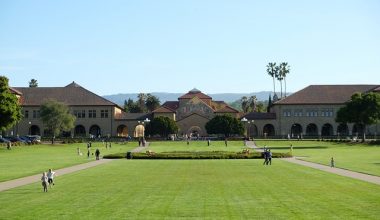With newspapers, 24-hour cable news stations, and all-news radio stations, it seems people can’t get enough of current news. Journalism is a great fit for anyone who loves storytelling and giving real facts about current events. If you love reporting about the world, then read on for more information about how to become a Journalist.
But to become a journalist, you must acquire a bachelor’s degree in either journalism or communications. While completing a degree, gaining work experience will even take you straight to achieving what you want.
For example, an internship with a media outlet will help you secure a job in this field even though it has become very competitive.
This article is a guide to explain who a journalist is and their job descriptions. It also elaborates on the education requirements for a journalist and the certification that is best for a journalist.
To learn how to become a journalist in 2024, this article will take you through all the necessary steps. But you need to come to terms with some definitions, and the table of contents will give you an overview.
Table of contents
- What Is Journalism?
- Who is a Journalist?
- What Does a Journalist Do?
- Why Become a Journalist?
- What are the Educational Requirements to Become a Journalist?
- How Long Does it Take to Become a Journalist?
- How Much Does it Cost to Become a Journalist?
- What to Study to Become a Journalist?
- Where You Can Study to Become a Journalist?
- What is the Average Salary of a Journalist?
- How to Become a Journalist in 2024?
- How to Become a Journalist FAQs
- Conclusion
- References
- Other Article Recommendations
What Is Journalism?
According to Wikipedia, Journalism is producing and distributing reports on current or past events.
Basically, the word journalism is different from other forms of communication, such as email, tweets, opinions, advertising, and propaganda by some characteristics. For example, journalism provides valid information so readers and viewers can make reasonable decisions.
The world of journalism is very broad, hence making it very difficult to pin down a definition that dots all the I’s and crosses all the t’s. But you can gain more insight if you understand who a journalist is. The next topic will teach you who a real journalist is.
Who is a Journalist?
A typical journalist is one who gathers, creates, evaluates, and presents news and information. In other words, a journalist is one who does the investigation, collects and presents real information as a news story.
This news can be presented through television, magazines, newpapers, radio, and the internet.
Successful journalists do not only find the facts but the truth behind the facts. Apart from this, it would be best if you got a good picture of what a journalist does in order to be classified as successful.
What Does a Journalist Do?
What a journalist does depends on the context you are asking from.
Generally, a journalist investigates, collects and presents information as a news story that can be presented through television, magazines, newspapers, radio, and the internet.
The truth is that journalist often have broad career because they can work within deifferent areas of media. And at each of this media places, their tasks tends to be different.
Depending on the specific organization, a journalist can work as one of the following tasks below:
Reporter
As a journalist, you can function as a reporter. Here you will get direct involvement in the gathering of information.
They also conduct interviews, find sources and go ahead to gather all the information needed to write a well detaied new story.
Working as a repeorter, you will also present the information in a written or spoken form in news stories or documenteries and feature articles.
Genarally as a journalist working as a reporter, you will have to cover al kinds of news stories. Some specializes in certain areas such as sports, politics, or lifestyle. While some may have to work on the staff for large news organizations.
Editor
As journalist, you can also work as an editor. Basically, editors are in charge of deciding what goes in a newspaper, magazine, or new bulletin.
SEE ALSO: CRNA Vs Anesthesiologist: Job Description, Outlooks, Salary, Programs| 2024
In a nut shell, Editors are responsible for the content that is to be written by the journalists amd makes all the final decisions.
News Editor
Basically, the news editor is in charge of all the news journalists. They are responsible to make all the decisions about thestories to cover and who to the work exactly.
Sub Editor
A sub editor take stories already written and edited by reporters and out them into the right form that suits the special need of their particular newspaper, magazine or website.
It is important to understand that sub editors do not gather information by themselves but rather they concentrate on the already existing stories. Then they try to see how to make it better in order to match the audience.
Photojournalists
A photo journalist uses photography as a way to report the news.
What they do is cover events with a reporter, taking photographs to represent a written story. Or they choose to attend news events independently and do both jobs simultaneously.
Feature Writers
A typical writer in this field writes longer stories which will have to give more background to a news story.
This type of writing involves a lot of in-depth research to give readers a lengthy and informative article.
Why Become a Journalist?
There are a lot of reasons people choose to become a journalist. There is always a story behind their choice of career as a journalist.
But if you do not have that intriguing story yet, here are the benefits you stand to achieve by choosing journalism as a career path.
Flexible Career
Being a journalist is one of the best careers because of its flexibility. As a journalist, many different niches are at your disposal.
All you need to do is to choose one specialization and pursue training and education in that field. If you are interested in politics, art, food, business, and sports, you can and will always find a job related to your passion.
Remember that as much as this career is flexible, it is also competitive. So every day, you may need to prove your journalistic worth.
Helps You Network
Journalists always have the opportunity to talk to new sources daily, and this helps their network build exponentially. Not only can this network offer future story ideas, but it can also help with potential job opportunities.
They can also maximize the interview process by establishing trust with clients; when you do this, they will be more willing to help you next time.
You Learn Every day
As a journalist, you practically learn every day. You will learn what works, what doesn’t work, and why it is so. Hence, this will teach you introspection.
At the same time, you will learn to challenge yourself, discover your fears and desires, and learn about yourself and your role in the world.
Also, you will learn how to be a good storyteller. This is because of the several days of experience; your perception about how to tell a story will change totally.
It’s a chance to be Informative
The different forms of journalism is about providing the public with truthful insight. Becoming a journalist, you will learn to take a complex topic and break it down so everyone can understand it.
This is very important skill you can develop because it is essential to governments and big companies.
Chance to Change Perceptions
This one is always applicable to investigative journalism. Here the journalist seeks out the truth in murky circumstances and then shines a light on the topic, changing the world’s perceptions about such a situation.
SEE ALSO: Types Of Mechanical Engineering Jobs: Full Career Guide
In this role, you will be able to educate, re-educate, inform, and shape public perception. This is common to topics a journalist is passionate about.
What are the Educational Requirements to Become a Journalist?
Earning a degree is one of the best ways to start your journalism career. Typically, a journalist earns a bachelor’s degree in journalism, communications, or English.
Some students opt to double major and complete studies in journalism and also a subject like business or economics. Journalism majors will take coursework in reporting, English, feature writing and editing, photojournalism, communications, and journalism ethics.
How Long Does it Take to Become a Journalist?
A bachelor’s degree is the typical education track majority of people take to become a journalist and it takes four years to complete.
As a journalist who wants to succeed, you must progress in your profession. This makes them go to a master’s program, which takes an additional two years. While PhD usually lasts for five years.
Since people’s choice of the level of education they want differs, it is hard to say how many years it takes to become a journalist.
Knowing how long it takes to become a journalist totally depends on the level of education one wishes to acquire.
How Much Does it Cost to Become a Journalist?
On the average, an international student should expect to spend around $34,000 a year to pay for tuition and fees, books and supplies, and room and board costs in journalism school. However, the cost can vary based on the school.
Some schools can cost as low as $11,000 a year, while others can charge a little over $60,000 annually. This can only happen when you attend a school in your state of residence.
But even if you are in a private school, some good colleges and universities offer financial aid in the form of student loans.
What to Study to Become a Journalist?
There are some courses you will require to study before you can become a journalist. Studying languages is great because it will allow you to take your journalism qualification worldwide.
Also, you need to study communication to help improve your speaking skills. Here is a comprehensive list of the courses you need to study if you want to become a journalist:
- English Literature
- Creative Writing
- Media Studies
- Politics
- Languages
- Economics
- History
Where You Can Study to Become a Journalist?
Here is a list of the Best Schools to study Journalist specialization courses:
- University of Florida
- Boston University
- University of Georgia
- Michigan State University
- Marquette University
- New York University
What is the Average Salary of a Journalist?
In 2018, the average salary for a journalist was about $43,490. While the average pay for broadcast news analyst was $64,600, and the median annual pay for reporters and correspondents was $41,260.
Those journalists with little or no experience earn less than $23,490 per year, whereas those with years of experience earn more than $100,930.
Most journalists work full time, except those who freelance that work variable hours depending on whether or not they have an assignment.
How to Become a Journalist in 2024?
To become a successful journalist, you need first to gain an educational qualification, acquire relevant skills, engage in job training and certifications, and then finally gain experience.
Some steps guide you to becoming a journalist. Knowing and following these steps will aid you in earning your certification very fast and easily.
SEE ALSO: Accounting vs Finance: Which Should I Pursue in 2024
If you are entering the field with internship experience or starting from scratch, you should follow the steps we stated below to become a journalist.
Gain Educational Qualification
One of the first steps to becoming a journalist is to gain a good educational qualification. To do that, a bachelor’s degree is necessary for this competitive profession.
To gain qualifications in this field, journalism, and communications should be your major, but you can also minor in specialized subjects, such as political science or economics.
In some cases, a 4-year degree in communications or English is acceptable for those with freelance experience in the field. Some standard undergraduate journalism courses include:
- Investigative journalism
- Broadcast journalism
- Writing for communication
- Reporting
- Communication law
- Field reporting
Acquire Relevant Skills
Communication skills are mandatory for any journalists. If you are planning on entering broadcast journalism, polish your verbal communication skills.
Regardless of the type of field, you want to major, your written communication skills will have to demonstrate excellent grammar and spelling.
Generally, you have to learn how to spend time to research subjects using a wide range of sources. You can even go further to learn basic techniques such as computer software, cameras, and recorders, which can make the job easier.
Engage in Job Training and Certifications
While earning an undergraduate degree, journalism is advisable for a student to pursue internship opportunities. Internship helps to provide real-world experiences with magazines, newspapers, or television and radio stations.
The American Society of news editors, www.asne.org, suggests freelancing for those without experience from internships or writing for college newspapers.
Finally, internships will train you to become the better journalist you deserve.
Meanwhile, there are no specific certifications required to become a journalist.
Gain Experience
The truth is that you definitely need some experience to get a job as a journalist. But you don’t necessarily need a job to get experience.
In fact, most of the employers will not bother to look at your resume unless you have an internship experience listed.
Even if you intend to be a broadcast journalist, having a portfolio of different writing clips is a good idea to demonstrate you understand how to report on the news.
How to Become a Journalist FAQs
According to Wikipedia, Journalism is producing and distributing reports on current or past events.
The word journalism is different from other forms of communication, such as email, tweets, opinions, advertising, and propaganda in some characteristics. For example, journalism provides valid information so readers and viewers can make reasonable decisions.
A typical journalist gathers, creates, evaluates, and presents news and information. In other words, a journalist investigates and collects, and presents real information as a news story.
Conclusion
In summary, to become a successful journalist, you should follow the steps we stated below;
Gain Educational Qualification
Acquire Relevant Skills
Engage in Job Training and Certifications
Gain Experience
References
- educationchioce.org – How to Become a Journalist: Education and Job Training Requirements for Becoming a Journalist
- theartcareerproject.com – How to Become a Journalist





